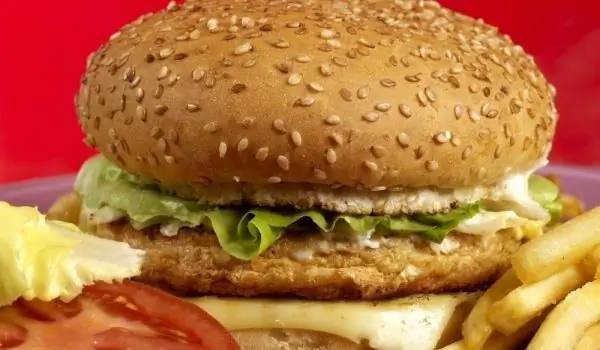2025 Author: Jasmine Walkman | [email protected]. Last modified: 2025-01-23 10:18
Water retention can lead to bloating and an unpleasant feeling of fullness. If you have a mild form of water retention, for example after eating foods high in salt, eating certain fruits and vegetables known as natural diuretics will help.
Diuretics are substances that stimulate diuresis in the kidneys, ie. fluid loss through urine. These are usually substances containing magnesium and potassium. In more severe forms of fluid retention, consult your doctor to prescribe the appropriate medication.
Many vegetables are considered diuretics due to their high water content. You may find it strange to treat water retention with water.
The addition of water increases the volume of fluids in the body, which signals the kidneys to release them. Examples of diuretic vegetables are parsley, artichoke, celery, onion and others.
Cucumbers have a great diuretic effect because they consist almost exclusively of water. Asparagus contains the alkaloid asparagine, which stimulates the excretion of waste products through the kidneys. Brussels sprouts, in addition to their diuretic effect, are also good for the pancreas.

Cabbage, tomatoes and carrots contain a large amount of vitamin C, which plays an important role in metabolism. Maintain potassium levels in the body by adding apple cider vinegar to your salad. In addition to their diuretic properties, vegetables will supply your body with many other essential trace elements.
Diets containing fruits that have a diuretic effect include the consumption of watermelon, melon, strawberries, figs, kiwi, pineapple, papaya, grapes and more. An additional effect of the intake of these fruits is the presence in them of many vital minerals and vitamins - C, B1, B2, potassium, which play a major role in metabolism and maintaining smooth and beautiful skin.
In addition to eating fruits and vegetables, you can stimulate diuresis by following some rules. Limit your intake of foods containing sodium, such as salt. Drink at least a liter and a half of water a day.
Raise your legs higher for a few minutes a day - this will help retain water in the lower extremities. Exercise regularly - sport improves overall metabolism.
Recommended:
Avoid These Foods To Protect Your Teeth From Caries And Staining

Dentists have been warning us for years about the harmful effects that candy and chocolate have on our teeth. But there are many other hidden causes of caries, enamel erosion and tooth discoloration. You can hardly believe it, but bottled water is one such food that slowly but surely takes away our beautiful smile.
Foods Rich In Antioxidants

Foods that are rich in antioxidants are vital to our overall functioning. These "magic" foods not only improve our health, but also increase our vitality. They are the healthiest and most nutritious. Antioxidant is the name given to a group of elements that protect human cells from damage, usually caused by free radicals.
Foods For Upset Stomach

In upset stomach food it must be mashed or rubbed through a colander with a wooden spoon to the consistency of cooked semolina and must be prepared by steam or water. Food intake is in small portions, up to 6-8 times a day. You can drink boiled water, but in no case fresh milk.
Top 12 Foods For Lowering Cholesterol

When we talk about reduction of high cholesterol levels , strict avoidance of fat is not the solution. You do not need to exclude from your menu even those foods that contain cholesterol, such as eggs, cheese, milk. It's all a matter of moderation and balance - you need to combine nutritious foods in your diet that fight inflammation, and thus solve the problem in its infancy.
Artificial Foods - Foods Of The Future?

The first artificial burger was presented and eaten at a demonstration in London. The meatball is made from artificial meat, composed of laboratory-grown stem cells. The project leader, physiologist Mark Post, said that in order to give the synthetic meat a normal look, it was colored with food coloring.

